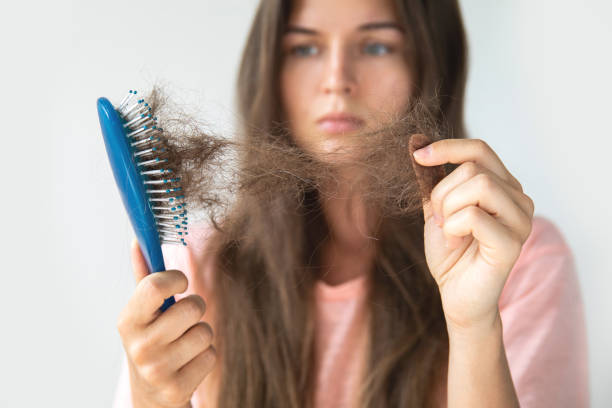Tips to Prevent Hair Fall:
[1] Maintain a Healthy Diet: Include a well-balanced diet rich in proteins, fruits, vegetables, and healthy fats to provide the necessary nutrients for hair growth and strength.
[2] Gentle Hair Care: Avoid excessive hairstyling, tight hairstyles, and the use of harsh chemicals or heat treatments. Opt for gentle shampoos and conditioners suitable for your hair type. [3] Stress Management: Practice stress-reducing techniques such as meditation, yoga, or engaging in hobbies that help relax the mind and body. [4] Regular Exercise: Physical activity improves blood circulation, which promotes a healthy scalp and hair growth.
- Over the Counter (OTC) Products: Mansarovar's Tamanna Hair oil, an FDA approved topical hair oil, is commonly used to treat hair loss. It stimulates hair growth by increasing blood flow to the scalp. Alongwith hair fall it also stops Premature graying of hair and removes Dandruff.
- For more detail you can also click here: HAIR FALL: UNRAVELING THE STRANDS OF CONCERN





